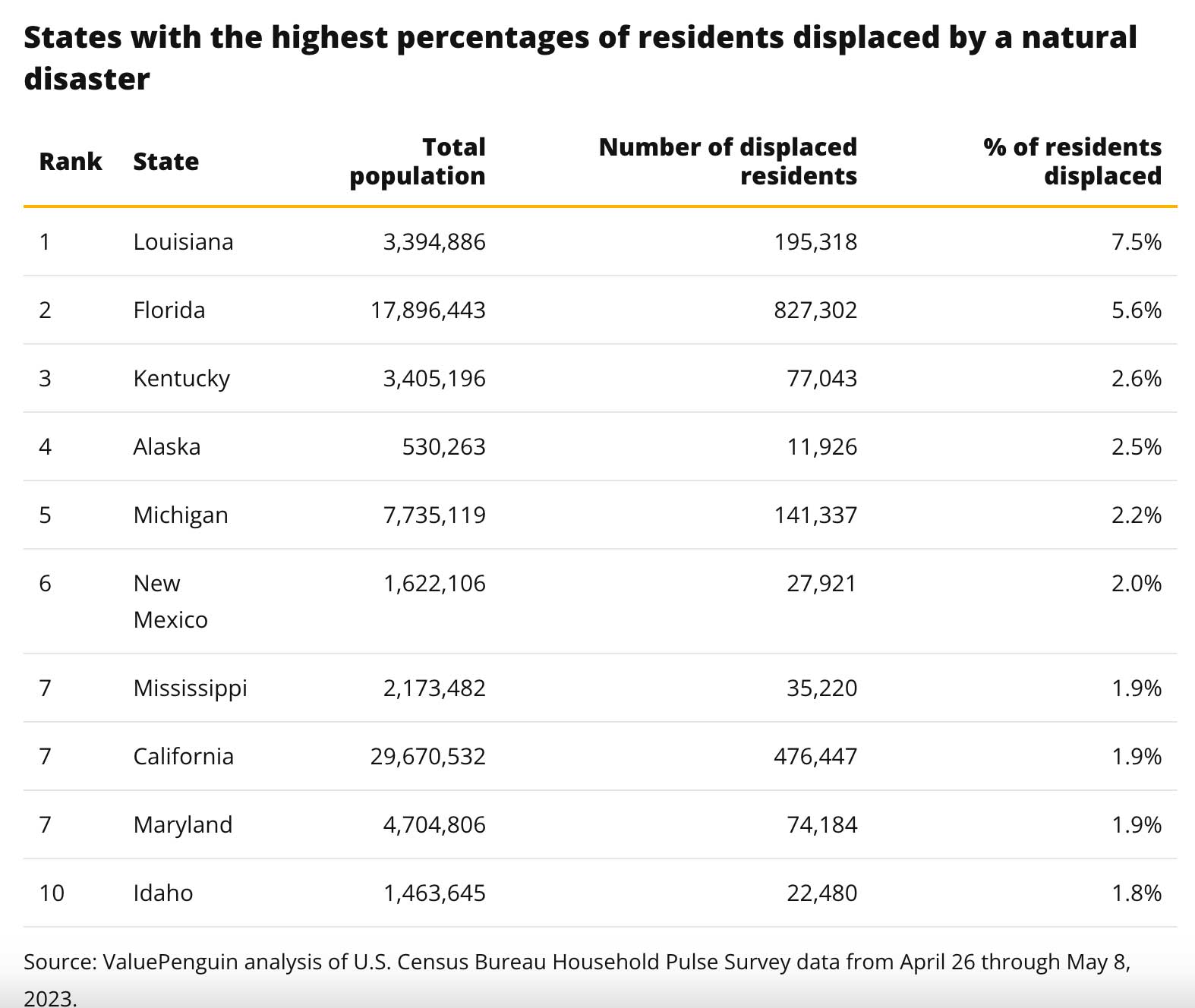Providing Shelter After Disaster: How Property Management Companies Can Collaborate with Insurance Firms

In the wake of natural disasters like the Hawaii fires in August 2023, countless individuals and families find themselves displaced, often with no home to return to. This year alone, the U.S. experienced 23 separate billion-dollar weather and climate disasters in the first eight months alone, according to NOAA.
With these records, 1.4% of the U.S. population has been displaced by natural disasters in the past year. Natural disasters have displaced more than 3 million Americans in the past year, equalling 1.4% of the country’s population. Four in 10 Americans displaced by disasters cited hurricanes as the cause.

Why Property Management Companies Are Crucial
- Instant Availability: Unlike the delay that usually comes with construction or rebuilding, property management companies often have immediately available rental properties. This swift provision of housing is critical for disaster victims.
- Infrastructure: The established infrastructure of property management firms, from maintenance crews to leasing processes, can make transitions smoother for victims in need of housing.
- Localized Knowledge: Local property management companies have an innate understanding of the area and can guide victims toward available resources, safe zones, and community hubs.

For property management companies, this presents not just a business opportunity, but also a chance to participate in community recovery and provide essential relief. By collaborating with insurance companies, property management firms can play an instrumental role in assisting disaster victims, offering them shelter and solace in their time of need.
Many times, families will first seek immediate short-term rental or hotel refuge, but as the recovery of their home requires extended time, they will find a place to live for months, either in local proximity or in vacation areas.
Collaborating with Insurance Companies
- Streamlined Processes: To avoid the usual bureaucracy, property managers and insurance firms can establish a streamlined process for disaster victims. This may involve simplified leasing contracts, expedited damage assessments, and direct billing.
- Coverage Understanding: Property management companies should familiarize themselves with the typical homeowner or renter insurance policies' specifics, allowing them to better align their offerings with what the insurance can cover.
- Shared Databases: By sharing databases of available properties and needs of the insured, both entities can quickly match disaster victims with suitable housing, minimizing waiting times.
- Joint Crisis Response Teams: A dedicated team combining resources from both the insurance and property management sectors can efficiently address housing needs, field queries, and assist in the relocation process.

The Win-Win Scenario
While it's evident that this collaboration offers a lifeline for disaster victims, it also presents benefits for both property management companies and insurance firms.
For property management companies, the benefits are an immediate and reliable occupancy rate, potential long-term tenants if victims decide to settle, and a positive brand image as a community supporter. For insurance companies, the benefits are efficient service to policyholders, reduced temporary accommodation costs, and positive public relations for proactive partnerships.
If you are a property manager who is interested in beginning to partner with insurance companies to provide housing for disaster victims and displaced families, you can contact insurance companies such as Proper Insurance and Steadily to get started. Websites such as Ale Solutions and CRS Temporary Housing also allow owners and property managers to register their properties to be booked by insurance companies for disaster victims and displaced families.

Natural disasters are unfortunate and unforeseeable events that cause immense distress. However, they also shed light on the spirit of collaboration and community support. By forming partnerships, property management companies and insurance firms can provide more than just shelter—they can offer hope and a path to recovery for those affected. As our communities continue to face challenges, these collaborations set a precedent for future cooperation and community resilience.
